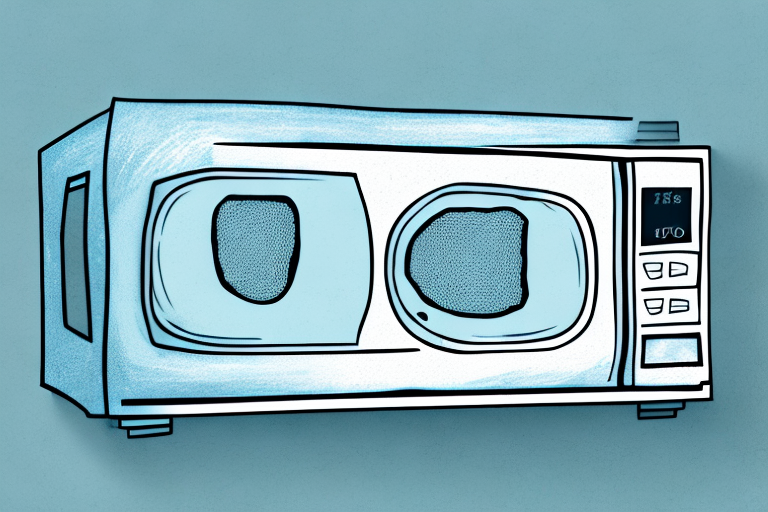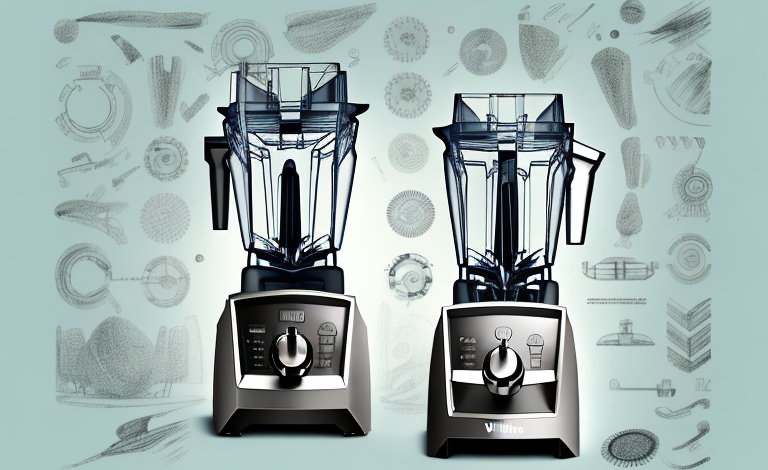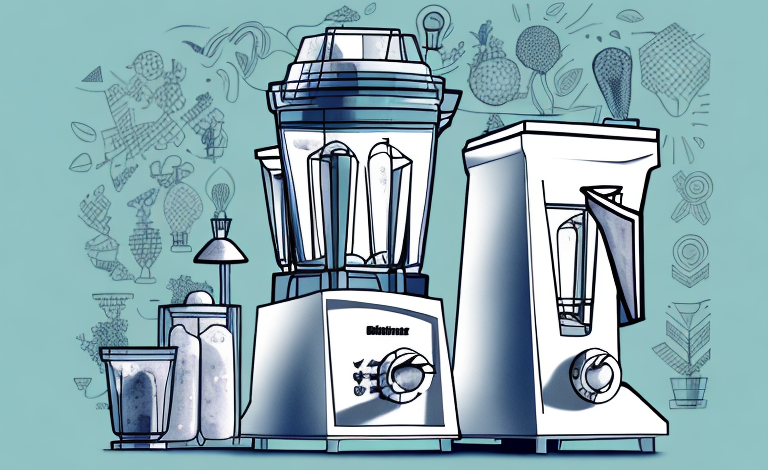Microwave ovens are a common household appliance that have revolutionized the way we cook and reheat food. They are convenient, fast, and reliable, but some people have noticed that their microwave ovens seem to be losing power over time. This begs the question: do microwave ovens get weaker with age? Let’s explore the science behind microwave technology and its lifespan to determine whether microwave ovens actually lose power over time and why.
The science behind microwave technology and its lifespan
Microwave ovens work by generating microwave radiation that interacts with the water molecules inside food, causing them to vibrate and generate heat. This process is called dielectric heating, and it is what makes microwave ovens so effective at cooking and reheating food quickly. However, the components that produce the microwave radiation – namely the magnetron and the power supply – can degrade over time and reduce the amount of power that is generated. Additionally, other components such as the door seal, turntable motor, and fan can also fail and affect the overall performance of the microwave oven.
It is important to note that the lifespan of a microwave oven can vary greatly depending on usage and maintenance. On average, a microwave oven can last anywhere from 5 to 10 years. However, with proper care and regular cleaning, some models can last even longer. It is recommended to clean the interior of the microwave regularly to prevent buildup of food debris and grease, which can cause damage to the components over time.
Another factor that can affect the lifespan of a microwave oven is the frequency of use. If a microwave is used frequently, it may experience more wear and tear on its components, leading to a shorter lifespan. Additionally, using the microwave for tasks it was not designed for, such as heating metal objects or cooking food in non-microwave safe containers, can also cause damage and reduce its lifespan.
How to test the power of your microwave
If you suspect that your microwave oven is losing power, there are several ways to test its performance. One common method is to use a microwave power meter, which measures the output power of the microwave radiation. Another method is to use a microwave-safe container filled with water to see how long it takes to reach a boiling point. If your microwave oven is taking significantly longer than it used to, it may be a sign that it is losing power.
It is important to note that the power of your microwave can also be affected by the age and condition of the microwave itself. Over time, the magnetron, which is responsible for producing the microwaves, can wear out and lose efficiency. Additionally, if the door seal is damaged or the interior of the microwave is dirty, it can also affect the performance of the microwave. Regular cleaning and maintenance can help ensure that your microwave is operating at its full potential.
The signs that tell you it’s time for a new microwave
If you have noticed a decline in the performance of your microwave oven, here are some signs that it may be time to replace it:
- The microwave takes much longer to cook or reheat food than it used to
- The microwave makes strange noises or emits a burning smell
- The door seal is damaged or no longer seals properly
- The turntable no longer rotates or moves awkwardly
- The control panel or display is malfunctioning
Another sign that it’s time to replace your microwave is if it sparks or produces flames while in use. This is a serious safety hazard and should not be ignored. Additionally, if your microwave is outdated and lacks modern features such as defrosting or sensor cooking, it may be worth upgrading to a newer model.
When shopping for a new microwave, consider the size and capacity that will best suit your needs. If you frequently cook large meals or use oversized dishes, look for a microwave with a larger interior. You may also want to consider features such as convection cooking or a built-in exhaust fan.
Common reasons why microwaves lose power over time
There are several reasons why microwave ovens can lose power over time:
- Worn out components: The magnetron, which produces the microwave radiation, can degrade or fail over time. Similarly, the power supply that provides electricity to the magnetron can also deteriorate.
- Dirty or damaged components: If the waveguide or stirrer blade inside the microwave oven is dirty or damaged, it can affect the distribution of microwave radiation and cause power loss.
- Overuse or misuse: Microwaves can also lose power if they are overused or used improperly. For example, if the microwave is used without any food inside or if the door is opened while the microwave is in use, it can damage the magnetron or other components.
It is important to note that regular maintenance and cleaning can help prevent power loss in microwaves. Cleaning the interior and exterior of the microwave, as well as checking and replacing worn out components, can help extend the lifespan and maintain the power of the microwave over time.
How to maintain your microwave oven to extend its lifespan
Like any appliance, proper maintenance can help extend the lifespan of your microwave oven:
- Clean the inside of the microwave regularly with warm, soapy water to prevent buildup and damage to the waveguide or stirrer blade.
- Replace the air filter and clean the vents to ensure proper air circulation and prevent overheating.
- Avoid overusing or misusing the microwave oven, such as using it for long periods of time or operating it with an empty cavity.
Additionally, it is important to keep the exterior of the microwave clean and free of dust and debris. This can be done by wiping it down with a damp cloth and drying it thoroughly.
Another way to extend the lifespan of your microwave oven is to use microwave-safe containers and utensils. Using metal or non-microwave-safe materials can cause damage to the oven and potentially create a safety hazard.
Can repairs fix a declining microwave performance?
In some cases, repairs can fix a microwave oven with declining performance. For example, replacing a worn-out magnetron or repairing a damaged door seal can restore the microwave’s power and functionality. However, in other cases, it may be more cost-effective to replace the entire microwave oven rather than repair it.
It is important to note that the age of the microwave can also play a factor in whether or not repairs are worth it. If the microwave is already several years old and has had multiple repairs in the past, it may be more practical to invest in a new one rather than continuing to repair it. Additionally, if the microwave is showing signs of rust or other physical damage, it may be a safety hazard and should be replaced rather than repaired.
The impact of wattage on the longevity of microwave ovens
The wattage of a microwave oven refers to the amount of power it uses to generate microwave radiation. Higher wattage microwaves can cook or reheat food faster than lower wattage microwaves. However, higher wattage microwaves can also deteriorate more quickly due to increased stress on the components. Lower wattage microwaves may have a longer lifespan, but they may also take longer to cook or reheat food.
Another factor that can impact the longevity of a microwave oven is the frequency of use. A microwave that is used frequently may wear out faster than one that is only used occasionally. It is important to follow the manufacturer’s recommended usage guidelines to ensure the microwave lasts as long as possible.
In addition, the quality of the components used in the microwave can also affect its lifespan. Microwaves with higher quality components may last longer than those with lower quality components. It is important to do research and read reviews before purchasing a microwave to ensure that it is made with high-quality materials.
How to choose a durable and long-lasting microwave oven
If you are in the market for a new microwave oven, here are some tips to choose a durable and long-lasting one:
- Look for a microwave oven with a stainless steel interior, as this material is more durable and resistant to damage than plastic or painted interiors.
- Choose a microwave oven with a higher wattage if you need to cook or reheat food quickly, but be aware that it may have a shorter lifespan.
- Read reviews and compare brands to find a microwave oven with a reputation for reliability and durability.
Another factor to consider when choosing a durable and long-lasting microwave oven is the size. A larger microwave oven may be more convenient for cooking or reheating larger dishes, but it may also be more prone to wear and tear over time. On the other hand, a smaller microwave oven may have a longer lifespan, but may not be as versatile in terms of cooking options.
It is also important to consider the features of the microwave oven. Some models come with additional features such as convection cooking, grilling, or defrosting, which may be useful for certain cooking needs. However, these additional features may also add to the complexity of the microwave oven and increase the likelihood of malfunctions or breakdowns.
Alternatives to microwave ovens when they start losing power
If your microwave oven is losing power and you are looking for alternatives, here are some options:
- Oven or stovetop: Cooking or reheating food in a conventional oven or stovetop can take longer than using a microwave, but it can be just as effective and can add more flavor and texture to your food.
- Toaster oven: A toaster oven is a smaller version of a conventional oven that can be used to bake, broil, and toast food.
- Slow cooker: A slow cooker is an appliance that uses low heat and a longer cooking time to prepare food, but it can be a convenient and hands-off way to cook meals.
In conclusion, microwave ovens get weaker with age due to worn out or dirty components, overuse, and misuse. However, proper maintenance and repairs can help extend their lifespan. When choosing a microwave oven, consider the wattage and durability of the appliance, and keep in mind that there are alternatives to microwaves when they start losing power.
Another alternative to a microwave oven is a steamer. Steaming is a healthy cooking method that preserves the nutrients and flavors of the food. You can use a steamer basket or a steamer pot to cook vegetables, fish, and other foods.
If you don’t have any of the above appliances, you can also use a microwave-safe dish with a lid or a microwave-safe plastic wrap to cover your food. This will help retain the moisture and heat, and prevent the food from drying out or splattering in the microwave.



